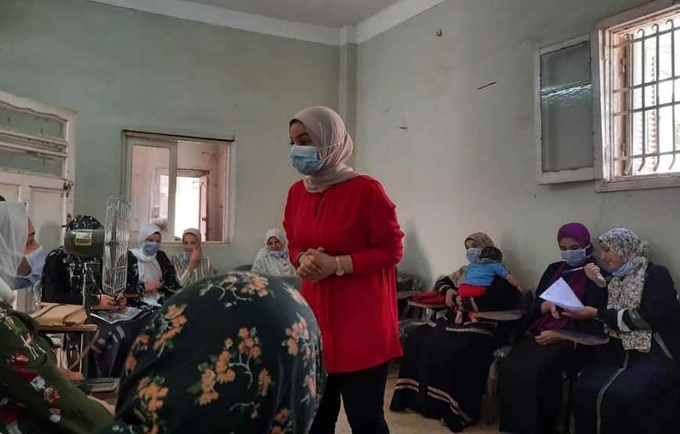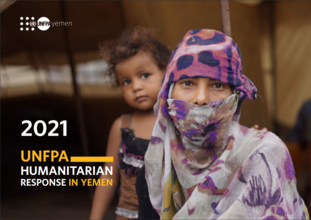MENUFIYA, Egypt – In a small village of “Menufiya” - one of Egypt’s governorates - community members used to refuse notions related to reproductive health. They labeled some concepts, such as Female Genital Mutilation (FGM), as “western” and “blasphemous” according to Ms. Salma Abdel Moneim, a reproductive health trainer in Menufiya. “The village is very conservative, so it was challenging to earn their trust.” she said.
Through a UNFPA-supported population awareness club, Ms. Abdel Moneim advises young people in her village about crucial yet sensitive issues that span female genital mutilation, child marriage, contraceptive choice and gender equality. Young members of the club are encouraged to talk openly about these often misunderstood issues, using education, music, interactive theatre, sports and art.
To spark a wider discussion and in the hopes of rallying more young people from her village, Ms. Abdel Moneim asked some of her community leaders if they could help. “They are respected and trusted,” she said. “We explained the topics we wanted to discuss and how to tackle the problems women and girls face in our community.”
The community leader agreed to join the awareness-raising sessions and started to come, bringing along with her a number of girls, the girls then started bringing their mothers.
“I started learning about topics I had little information about, such as adolescent health and the harms of child marriage. A lot of the mothers learned a lot about how to deal with their teenage children.” said Basma Walid, a 21-year-old girl who heard about the club from her relatives and started attending the sessions along with her sister, cousins and neighbors. “People started telling each other and the number of attendees started growing,” she added.
The Population Awareness Clubs were established as part of a joint initiative between UNFPA and Egypt’s Ministry of Youth and Sports under the UNFPA-Canadian Embassy in Egypt joint project “Addressing Gaps in Reproductive Health”. The project works to raise awareness of women and men on family planning related issues and address barriers women and girls face in accessing quality health services. Some 400 population awareness clubs have now been set up across Egypt.
The clubs inform and empower young people about their sexual and reproductive health and rights and address damaging social norms and attitudes, such as the sexual harassment against women and girls. Ms. Abdel Moneim recalled, “We were discussing whether harassment is ever warranted by what a woman is wearing. The participants were debating it among themselves, until they came to the conclusion that a woman’s clothing is irrelevant.”
The clubs have gradually built a bridge of trust with the communities they work in. “We speak their language and share their problems,” Ms. Abdel Moneim said. “I wasn’t telling them what to do, I was just giving them the information they needed to make their own decisions.
The clubs also engage men and boys in discussions on gender equality and reproductive health issues, which they might not otherwise consider as relevant to them. “At first they were reluctant to listen or hear this information from a woman,” Ms. Abdel Moneim said. “But I eventually earned their trust by talking to them about my own brother, for example, so they understood that I could relate to them.
In 2021, almost 1.3 million women and girls in Egypt were reached through UNFPA’s female genital mutilation protection, prevention and recovery programmes. More than 11,000 girls were also protected from forced or early marriage, and 67 communities launched advocacy platforms to encourage and inform others about the dangers of gender discriminatory practices and social norms.


